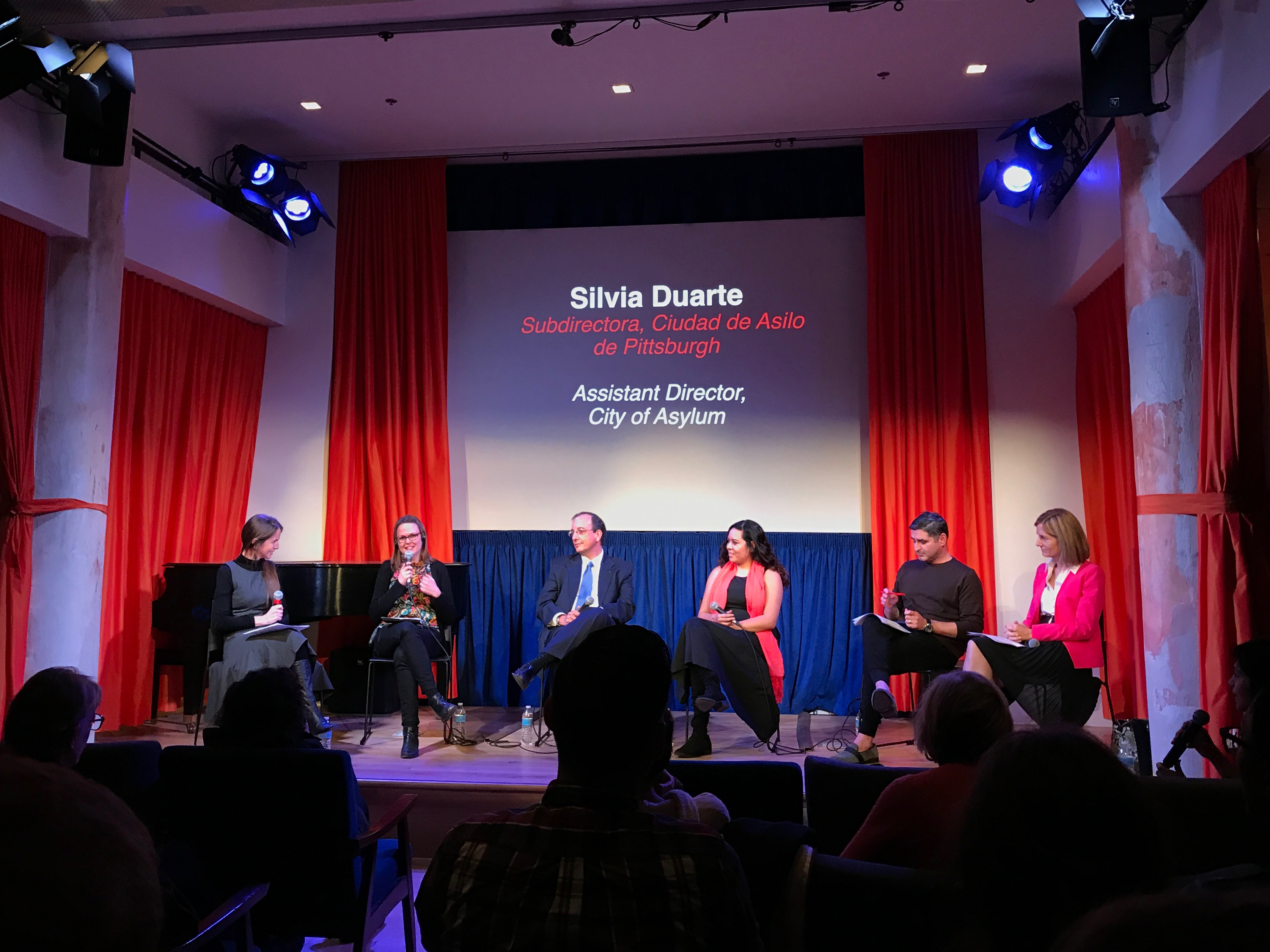Author: Ana Rodríguez Castillo
Project Coordinator, Collecting Knowledge Pittsburgh, Department of History of Art and Architecture
This is the definition of curious according to the Merriam-Webster dictionary:
Curious: adjective
1. Marked by desire to investigate and learn.
2. Marked by inquisitive interest in others' concerns.
3. Exciting attention as strange, novel, or unexpected.
Can Curiosity be Cultivated? This is an interesting question with an easy short answer: Yes. But what really sparked my curiosity to attend to this colloquium at City of Asylum was written on the back of the flyer: ¿Se puede cultivar la curiosidad? The discussion was going to be conducted in Spanish with simultaneous English interpretation via headset for the non-Spanish speakers. If we add the complexities of language to this question it becomes much more complicated. Yes, curiosity can be cultivated, but the question now requires us to consider how a person’s curiosity is engaged, challenged, and embodied through language?
The panel discussion was co-moderated by Kate Joranson, Head Librarian at the Frick Fine Arts Library at the University of Pittsburgh, and Silvia Duarte, associate director of City of Asylum. Each one of the four speakers were of different Spanish-speaking origins, and they all have a very diverse professional background. I think this aspect especially enriched the conversation with such varying points of view expressed from a common language.
Angélica Ocampo, from Argentina, is the President and CEO of the World Affairs Council of Pittsburgh. For her curiosity means freedom, and she embraces bilingualism as a tool to access other worlds. José Carlos Díaz, born in Miami but from a Mexican background, is the Chief Curator at The Andy Warhol Museum. He channels and explores his curiosity through art and engaging with the local community. Rosa María Cristello, a Guatemalan who moved to the U.S. at a very early age, is the Executive Director and Founder of the Latino Community Center in Pittsburgh. For her, curiosity means to ask questions to others as well as to ourselves. Curiosity is the key for learning and personal growth. Diego Chaves-Gnecco MD, MPH is a Developmental-Behavioral Pediatrician, Director and Founder of the program Salud Para Niños. Curiosity is something natural to him not only personally but also professionally. Throughout his career, as a scientist questions concerning why and how are at the very core of his work.
I want to clarify, although surely it is obvious to everyone who reads my name, that I am not a native English speaker. I was born in Spain and therefore English is my second language... or third. For me, the conversation was not only enriching and interesting for its content but also for its form. Language is something that goes beyond covering a communicative need. Language is an inherent part of who we are.
One of the speakers, I believe it was Angelica, highlighted something that I think is very special about different languages: the untranslatable words. In both English and Spanish, there are words that don´t easily translate from one language to the other. Some words need a long explanation or several words to be translated. I have experienced this situation in both languages. In my native language, Spanish, I constantly miss words because they don’t have a direct equivalent in English. Sometimes I get angry at words that translate equally but have other meanings and nuances in my mother tongue that are lost in the English translation.
An example? This is the definition of the adjective curious according to the dictionary of the Royal Academy of the Spanish Language (the translation is mine):
Curioso/a: adjetivo
1. Inclined to find out about other people's concerns. Inclinado a enterarse de cosas ajenas.
2. Inclined to learn what he or she does not know. Inclinado a aprender lo que no conoce.
3. Clean and well-arranged. Limpio y bien arreglado.
4. That draws attention or attracts interest due to its rarity or originality. Que llama la atención o despierta interés por su rareza u originalidad.
5. Admirable or valued. Estimable o apreciable.
6. [Colloquial, Spain and Venezuela] That does things with great skill and dedication. Coloq. Esp. y Ven. Que hace las cosas con gran habilidad y esmero.
7. [Venezuela] Person capable of doing any job. Ven. Persona que realiza cualquier oficio.
8. [Peru, Dominican Republic and Venezuela] Medicine man. Perú, R. Dom. y Ven. Curandero.
The event was very interesting and revealing. Can curiosity be cultivated? It is a question that is relevant to almost anyone. I'm curious, so yes I'm interested in the answer. But when the question is phrased as ¿Puede cultivarse la curiosidad? I also felt that the question was addressed to me. And this detail, for a foreigner who lives her day-to-day using a non-native language, it made me feel like a part of the answer.
Learn more about the Collecting Knowledge Pittsburgh initiative here

